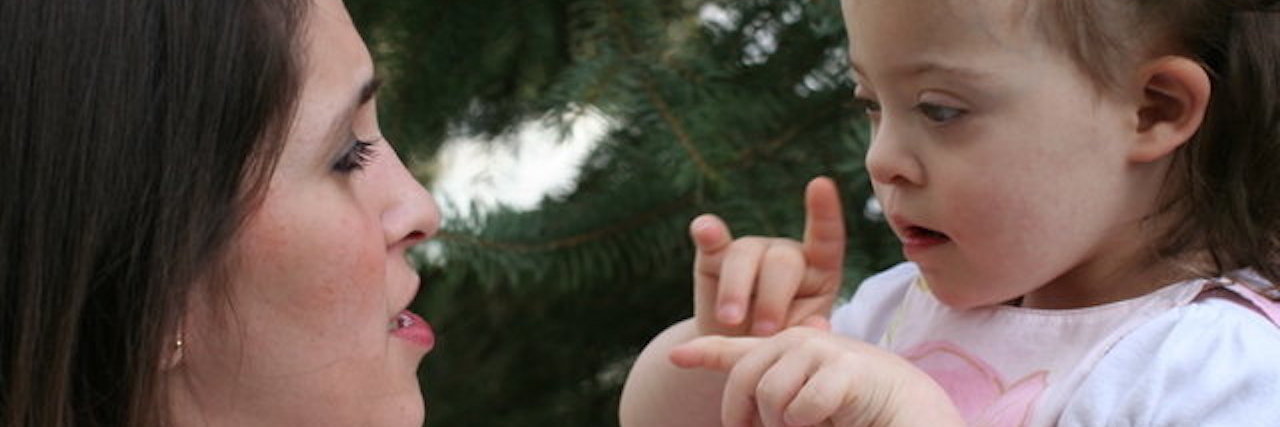Yes, Kids With Down Syndrome Can Be Raised Bilingual
Sometimes the news isn’t as straightforward as it’s made to seem. Ellen Stumbo, The Mighty’s parenting editor, explains what to keep in mind if you see this topic or similar stories in your newsfeed. This is The Mighty Takeaway.
A recent study by Bangor University compared the development of children with Down syndrome who were raised in bilingual speaking families and those who spoke English only. The study consisted of 32 families. Of those, 14 of the kids were raised in homes speaking both Welsh and English.
The initial conclusion suggests children with Down syndrome had similar levels of English proficiency whether the child spoke one or two languages. Researchers said this study may be relevant to other languages too.
You may be wondering, what’s the big deal?
For many of us who have bilingual homes, when our children were born with Down syndrome, we were encouraged by professionals to choose one language and one language only.
I am Mexican, so my first language is Spanish. My husband is American and speaks only English. I spoke Spanish to my oldest daughter when she was young, wanting her to grow up bilingual. However, when my daughter was born with Down syndrome, the “professionals” said speaking Spanish to my daughter would be detrimental.
Their reasoning was kids with Down syndrome struggle with language development, and two languages would be too confusing, plus the added reality that people with Down syndrome have an intellectual disability. We heard this advice from several professionals, not just one, so I stopped speaking Spanish at home.
We are not an isolated incident of this “professional” recommendation. I have spoken to many bilingual families of kids with Down syndrome who were encouraged to do the same.
The reality is, we do not know enough about language development in children with Down syndrome, and as far as I am aware, there is no other study looking specifically at kids with Down syndrome growing up in bilingual homes.
Plenty of studies, however, have focused on typically developing children raised in bilingual homes. What we do know is that bilingual development can result in slightly slower language development than for monolingual children. However, as kids get older, language skills even out.
There is no research that suggests this would not be the same outcome for children with Down syndrome. Yes, it may take our kids with Down syndrome even longer to acquire language development when raised in a bilingual home, but to suggest they will not also catch up seems to impose limitations that are not necessarily a reality, but rather “more convenient.”
I have now met several adults with Down syndrome who are bilingual. I hope this study is the beginning of a change in direction, where rather than professionals telling parents not to raise the child in a bilingual home, they explain it is possible and a personal choice, as it is with any child.

